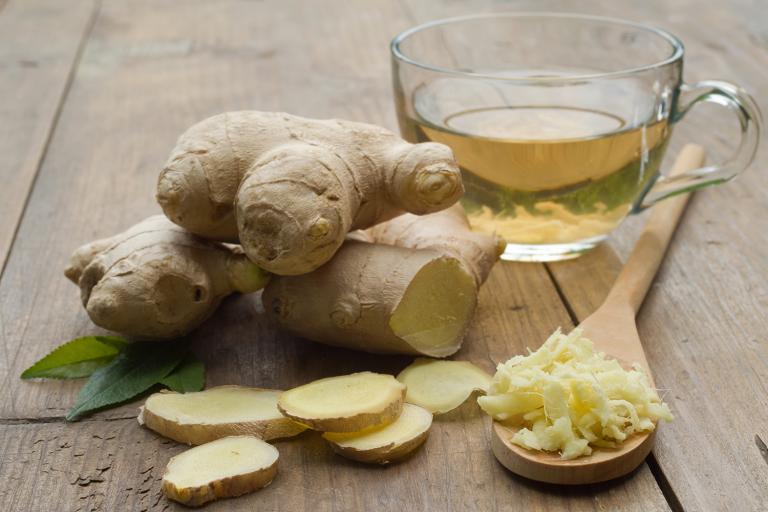Whether you sampled too many rich offerings at a holiday party (after all, you can’t insult your hostess!) or talked too fast while sharing news with friends and family, or just ignored those full signals from your midsection, help is on the way with three tried-and-true teas.
Kinds of Tea to Aid Digestion
-
Peppermint Tea
Peppermint tea is famous for its power to aid digestion and quell nausea, flatulence, and diarrhea. Several studies support its use for irritable bowel syndrome as well.
It calms stomach muscles and improves the flow of bile (used by the body to digest fats), so that food can pass through the stomach more quickly.
Its pleasant taste makes it a good choice for older kids, but don’t use peppermint with infants or small children. If your symptoms are related to gastroesophageal reflux disease, avoid peppermint.
-
Ginger Tea
Ginger enjoys a popular following for its ability to calm an upset tummy and ease nausea and vomiting (it even helps with motion sickness, if you’re traveling).
Ginger has chemicals that stimulate saliva, bile, and gastric secretions to aid digestion and encourage the muscle contractions that help food move through the digestive tract and reduce muscle spasms to curb diarrhea. In crystallized form, ginger is a convenient and kid-friendly remedy.
-
Chamomile Tea
Chamomile has a long history of use for treating stomach cramps, indigestion, diarrhea, and gas. It helps relax muscle contractions in the smooth muscles of the intestinal tract.
A bonus benefit: Chamomile tea also soothes jangled nerves, in case family get-togethers leave you feeling anxious.

